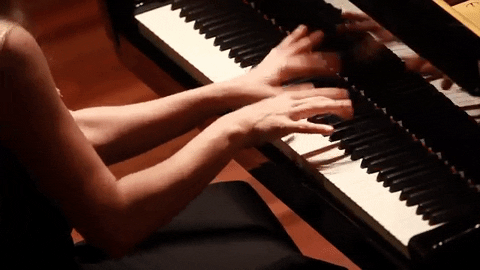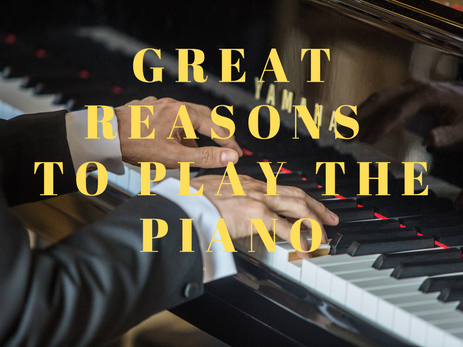Uncategorized
Four Great Reasons to Play the Piano
Hesitating to take piano lessons? Here’s the extra motivation that you need.

Learning a new skill is always something good for your overall health. It’s a curiosity boost, a chance to experiment, to play and, in some cases, a few hours per week destined exclusively to yourself.
In this article, we will explore four of the uncountable benefits of taking piano lessons, with examples of what they can do to your everyday habits:
Stress Relief
Stress is extremely common in our everyday lives whether that be a long day at work, a hectic schedule for the week ahead, or even having to cope with complicated emotional events.
The piano is a wonderful way to let go of your stress and ease yourself by focusing your attention on something other than what is causing you to worry. By learning to play the piano, you’ll feel relaxed and enjoy the fact that you can listen to something a bit more serene than your thoughts.
Split Concentration and Multi-Tasking
It is extremely handy in everyday life to be able to multi-task, and playing the piano is the perfect way to train that!
The use of different notes and rhythms in your hands and feet (for the pedals) helps you to compartmentalize your brain and allows you to separate each action. This way, you achieve what the music is demanding. After, you can transfer these skills to your daily tasks, and take over all of your commitments almost as graciously as you play your favourite tunes.
Improvement of Your Physical Health
We all know how inspiring music can be. It swings moods instantly, makes you wanna dance if you feel a bit low, gives you comfort through rough times, helps you understand things from a new perspective. Such power over the feelings and thoughts of people must correlate with their physical health. And when you play an instrument it certainly does.
Playing the piano sharpens your motor skills, improves dexterity and hand-eye coordination. Besides, reduces your heart rate, lowers your blood pressure and increases your immune system. It is connected to growth hormones, the ones who keep you energized and prevent aches and pains in your later years. And the best part is that all of these huge physical changes can be achieved through something quite simple and enjoyable.
Ultimately, it makes you feel good. And that’s because it activates the dopamine production in your brain, making you connect your practice with a sense of pleasure and general well-being.
That’s why you could easily spend hours happily submerged in your piano and have no clue where did the time fly.
Criticism from a Positive Perspective
In life, you are always going to experience some form of criticism: nobody is perfect. If you periodically expose yourself to it in a comfortable environment, you will learn to handle it pretty well. Eventually, you will be able to turn criticism into positive actions that improve your practice, rather than assuming that you can’t do something.
With the piano, there are hundreds of ways to make a piece sound better, and unless you are going to play it perfectly the first time (which is highly unlikely) you will experience constructive criticisms from your teachers.
The big lesson here is the shift in perspective: you can start to think of difficulties as challenging situations, rather than overwhelming obstacles. Playing the piano also changes your relationship with mistakes, understanding that they are part of the journey and necessary to learn, improve and achieve your goals. This knowledge is valuable for life.

